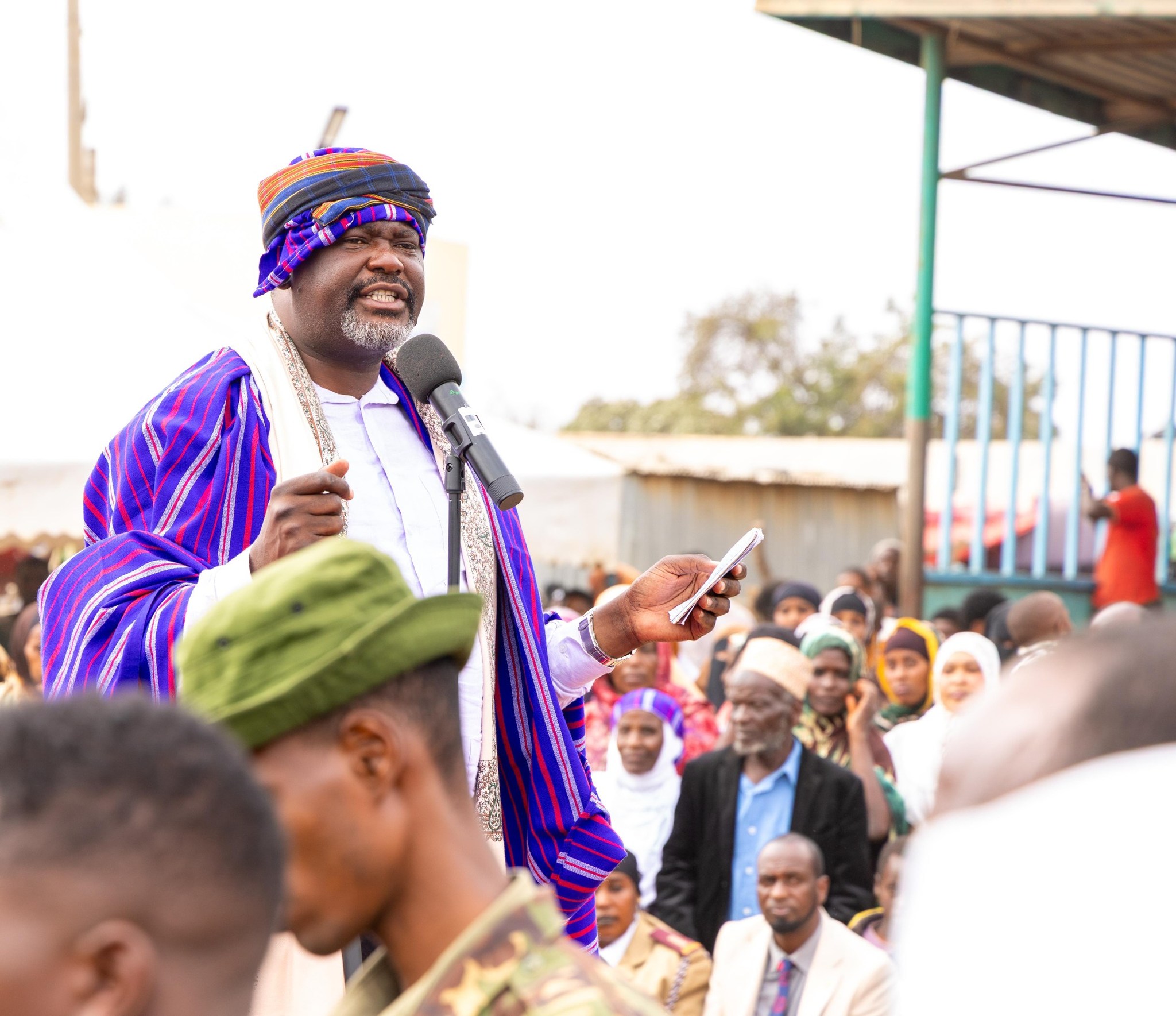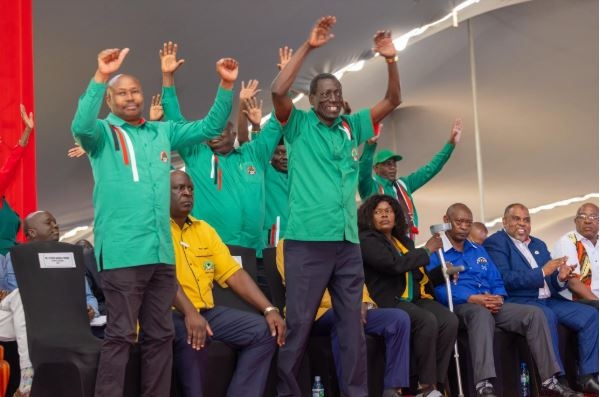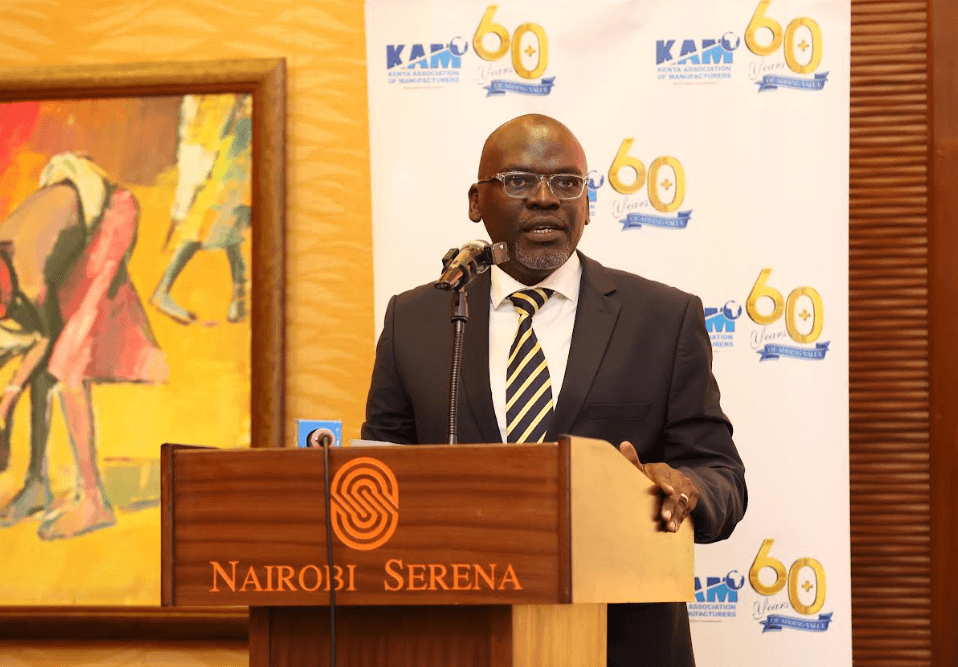
 Public Service CS Geoffrey Ruku
Public Service CS Geoffrey Ruku
Public Service CS Geoffrey Ruku says his first 100 days in office have ushered in a new era of accountability, empathy, and efficiency in Kenya’s civil service.
Ruku, appointed in April following unanimous parliamentary approval, told the Star he’s determined to depart from past practices and leave behind a legacy of a reformed, citizen-focused public sector.
His leadership, he says, is less about new hires or flashy investments and more about reinvigorating existing systems and people.
“I am reminding public servants to work hard for the people of Kenya,” the former Mbeere North MP said. “I’ve injected new energy, fresh blood into the system by renewing purpose, not payrolls.”
A central tenet of his reform drive is strict adherence to Article 232 of the constitution, which outlines values such as integrity, equity, accountability, and responsiveness in the public service.
“I’ve never heard any Cabinet Secretary speak about the need to uphold these principles,” Ruku said, asserting that his leadership is anchored in restoring faith in public institutions.
Ruku’s style is hands-on. In his first weeks, he conducted unannounced visits to government offices, particularly in the Coast and Nakuru regions, where he reprimanded latecomers and locked out tardy employees. “Timeliness, efficiency, and citizen-centred delivery are non-negotiable,” he declared.
His surprise visits—soon to target Huduma Centres and other state offices—have set a new tone in a bureaucracy often criticised for complacency. He’s also taken swift action against corruption, suspending three senior National Youth Service managers implicated in graft.
“I found people bragging about being untouchable, even citing their proximity to the President. They’re now at home,” Ruku said, referencing ongoing EACC probes.
One of his flagship initiatives is the commercialisation and restructuring of the NYS. Ruku wants the service to generate its own revenue through engineering, security, and agriculture ventures.
“We want NYS weaned off government support. It can make money if well run.”
By January 2026, the NYS intake will double from 20,000 to 40,000 youths, tapping into underutilised capacity and creating economic opportunities for young people.
Under Ruku, the long-overlooked Special Programmes docket has become a hub of rapid emergency response.
His ministry has responded to disasters—including fires and food crises—within 24 hours, often delivering not just supplies, but state sympathy.
“In Kibra, when grieving mothers saw a minister had come on behalf of the President, it gave them hope,” he recalled. “Relief is not just physical—it’s emotional too.”
Beyond disaster response, Ruku is working to shift public institutions from reactive to proactive mode. By building food reserves and improving coordination, the ministry aims to prevent crises before they escalate.
He has also prioritised reforms at Huduma Centres, despite budgetary challenges. A fully solar-powered centre in Baringo and plans to expand to all constituency headquarters are among the milestones. Surprise inspections continue to ensure quality and timeliness of services.
His ministry is also digitising key services such as document authentication and diplomatic privileges, aligning with the broader Huduma Smart Serikalini initiative aimed at using technology to improve efficiency and transparency.
“The goal is simple: eliminate delays and ensure timely access to essential services,” Ruku said.
Still, systemic inefficiencies and resistance to change remain. Ruku admits reforming the civil service won’t happen overnight, but he’s committed to building momentum. Merit-based hiring remains a top priority.
“Employment will be based on qualifications, not connections,” he said, echoing President Ruto’s anti-nepotism stance.
As he crosses the 100-day mark, Ruku’s blend of firm leadership, policy reform, and personal empathy is defining his legacy.
From cracking down on laxity to fellowshipping with disaster victims, he is shaping the public service around a new mantra: integrity, innovation, and a deep sense of duty.
“It’s critical that public services are provided to Kenyans in the most accessible, responsive, and timely manner,” Ruku said.
And politically, Ruku is not just a technocrat—he’s becoming one of President Ruto’s key lieutenants in the crucial Mt Kenya region, adding a political edge to his administrative momentum.
INSTANT ANALYSIS
For Kenyans long frustrated by bureaucratic red tape, Geoffrey Ruku’s first 100 days offer a glimmer of hope.
His no-nonsense style and visible presence in disaster zones and government offices suggest a leadership model anchored in both action and empathy. But the real test will be whether his momentum can be institutionalised and sustained—proving that public service can indeed be efficient, fair, and citizen-driven.

















